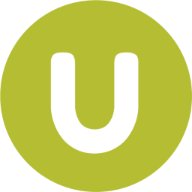Careers curriculum
Below is a planned programme of activities to support learners in making decisions regarding their career pathway. The activities will:
- enable learners to manage their careers and career progression
- provide guidance on how to sustain employability throughout their lives
This careers curriculum:
- has been created to join the teams together with our careers offer
- has been devised with learners, parents and employers to support our learners to increase their skills and abilities in preparation for the world of work
- has been created alongside the Gatsby Benchmarks recommendations
- offers a structure to the activities we have available to all learners
The intent this careers curriculum is to:
- raise aspirations
- give learners the skills to achieve their full potential
- provide them with the opportunity to experience different career pathways
Implementation:
- Delivering a programme that is clear, progressive and impartial. It is backed by the senior leadership team and all stakeholders, with explicit content that is:
- taught in logical progression
- routinely monitored
- audited and evaluated
- Individualised programmes that are age and ability appropriate. These programmes have clear and accurate career information, advice and guidance, which:
- meets the learner’s needs
- upports them with the development of their own personalised careers journey
- results in sustainable transitions and destinations
- A range of up-to-date resources which supports the ever-changing and evolving world of work landscape. This ensures they understand their options and can reach their full potential, and includes:
- preparing for adulthood
- meaningful FE, HE and employer encounters
- work experience
- volunteering and community opportunities
- bespoke support
- job coaching
- Planned, facilitated access from external providers who can fully inform learners about LMI and the range of:
- post 16 options
- post 18 options
- alternative qualifications
- career pathways
- Teachers can:
- confidently embed careers within their own subjects (SOW)
- link their own expert subject knowledge to the world of work
- explain the range of pathways available, giving unbiased option
- Regular communication, advice, information and guidance. This supports all stakeholders and encourages further engagement through a range of communication channels, such as:
- newsletters
- social media
- website
- Individualised support with career aspirations, helping them to recognise the link between college and work, and the value of lifelong learning. Learners will develop personal strengths such as:
- career management skills
- improving attainment
- adaptability
- resilience
- enterprise and engagement
- An evolving alumni programme to inform and inspire
- Close working relationships with all stakeholders including community and local business networks
Impact:
- NEET figures which reflect the success of YPLP programme and interventions. Learners are:
- well-prepared
- feel empowered to make reasonable decisions about their future
- Learners are able to make clear informed decisions about their future career choices due to a wide range of experiences and opportunities
- Data such as destination shows a range of positive outcomes, as learners move successfully, at all transition points, onto sustainable pathways
- Teacher and careers team CPD. Subject teachers are:
- expert in their delivery
- confident in how their subject links to the world of work, and the variety of pathways and options
- Learners are more engaged in the curriculum, and connected with their teachers and areers team as they are able to see the relevance of subjects and how they relate to the wider range of career options and pathways
- Learners develop competencies and employability skills.They become motivated, understanding they can:
- make a contribution to YPLP, the community and society
- have a positive attitude towards lifelong learning
- Increased and positive engagement with all stakeholders, via a range of communication methods
Curriculum sequence
The curriculum is organised in a way that allows learners to:
- gradually explore and develop their understanding of career options
- build the necessary skills and knowledge to pursue those paths
- self-discovery and assessments
- exploring career options
- skills development
- work experience and vocational training
- job search and application process
- personal and professional development
- transition planning
